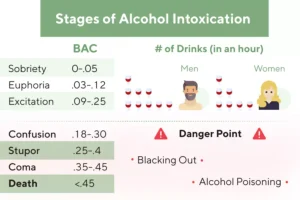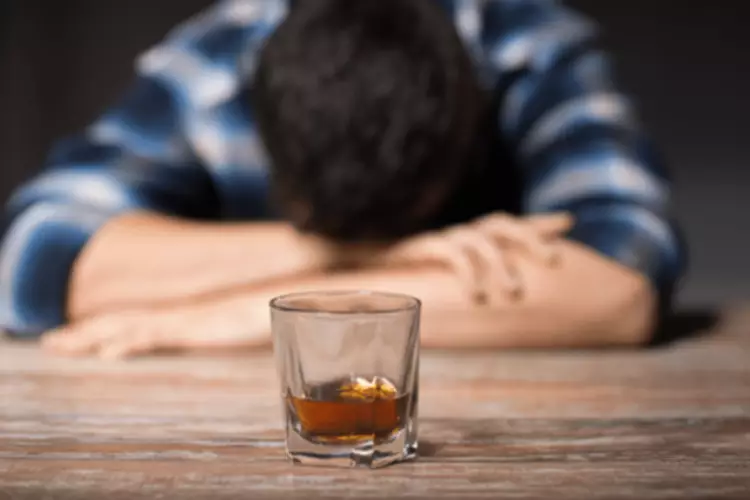06 Oct Warning Signs of Alcoholic Neuropathy Promises Behavioral Health

It also appears that the addition of NCS may improve the identification of alcohol-related peripheral neuropathy. What about some home remedy options or alcoholic neuropathy vitamins — do they exist? Home remedies like gentle exercise, warm baths, and maintaining a balanced diet can help manage alcoholic neuropathy symptoms. Vitamins such as B1 (thiamine), B12, and folate are essential for nerve health and may support recovery, especially when combined with reducing or stopping alcohol intake. Patients with alcoholic neuropathy typically present with a history of chronic consumption of alcohol and an insidious onset of distal lower extremity paresthesias, dysesthesias, or weakness. The most common presenting complaint seems to be paresthesias in the feet and toes.

Benfotiamine for the treatment of alcohol related peripheral neuropathy
Early numbness of the soles followed by pins and needles, and then the unbelievable burn. Although it started in the right foot, the symptoms progressed to the left, and the left foot has now only minor symptoms, being a slight burn and slight tingling and minor numbness on tips of my toes. Absolutely no way to walk other than crutches and using my left leg for support. Alcoholic polyneuropathy can improve with some treatments, although damage already done to your nerves may be irreversible.

How to prevent alcoholic neuropathy?

There is damage to the nerves due to the direct toxic effect of alcohol and the malnutrition induced by it. Patients present with pain, ataxia, and paresthesias in the lower extremities. This activity describes the evaluation and management of alcoholic neuropathy and reviews the role alcohol neuropathy stages of the interprofessional team in improving care for patients with this condition.
- Pain seems consistent in the literature as 1 of the most common complaints and can be the first clinical indication of the disease.
- The subgroup without thiamine deficiency, considered to be a pure form of alcoholic neuropathy, uniformly showed slowly progressive, sensory dominant symptoms.
- A person should speak with a doctor if they are experiencing any symptoms of alcoholic neuropathy or if they are concerned about their alcohol use.
- Treatment for alcoholic polyneuropathy is available and may require that the person stop drinking alcohol.
- Preventing alcoholic neuropathy involves reducing or eliminating alcohol intake and maintaining a healthy diet rich in vitamins, especially B vitamins.
Understanding Alcoholic Neuropathy
As a result, people with alcoholic neuropathy experience symptoms such as tingling, burning sensations, numbness, and muscle weakness, particularly in the arms and legs. Deficiency of vitamins other Twelve-step program than thiamine may also contribute to clinical features of alcoholic neuropathy. Chronic alcoholism can alter the intake, absorption and utilization of various nutrients (nicotinic acid, vitamin B2, vitamin B6, vitamin B12, folate or vitamin E).

- Ethanol also impairs axonal transport and disturbs cytoskeletal properties.
- Pain management strategies, such as medications and lifestyle changes, may also be helpful for those experiencing chronic discomfort.
- In fact, a person who drinks heavily might not recognize that the symptoms they are experiencing are related to their alcohol consumption.
- Therefore, to control alcohol consumption disorder, medical assistance is typically required.
- Apart from above function, over-activation of epsilon form of protein kinase C (PKCε) is known to be involved in mediating neuropathic pain, such as pain induced by cancer chemotherapy (vincristine) 56 and diabetes 57.
- It may not sound like the worst symptom, but the effects can severely impact your balance and ability to avoid bumping into things.
Note that the disorder might not be completely reversible, so managing the symptoms comes into play. Physical therapy can be done to improve flexibility and muscle strength. If you are experiencing any of the symptoms listed at the beginning of this article, it is vital you seek medical diagnosis before coming to any conclusions or treatment plans.
This condition is typically not life-threatening, but the nerve damage from alcoholic neuropathy is usually permanent. However, people with alcoholic neuropathy can make healthy changes to minimize symptoms and receive help for chronic alcohol use. How long it takes for alcoholic neuropathy to develop depends on many factors, including the amount of daily alcohol consumed, a person’s age and overall health, their nutritional intake, and other individual factors. But in most cases, alcoholic neuropathy takes several years or even decades to develop, depending on the amount of alcohol consumed. Sometimes alcohol causes such severe damage to the body that a liver transplant may be necessary.


No Comments